Home
KASHBA Asiatica
Ais Loupatty
Ton Lankreijer
Staalstraat 6
1011 JL Amsterdam
Open 12:00 – 17:00
Zondag / Sunday 14:00 - 17:00
GESLOTEN / CLOSED
16 okt - 5 nov '25
Contact:
31-20 - 6 23 55 64
06 - 588 41 370
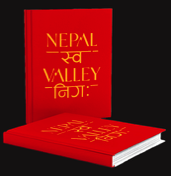
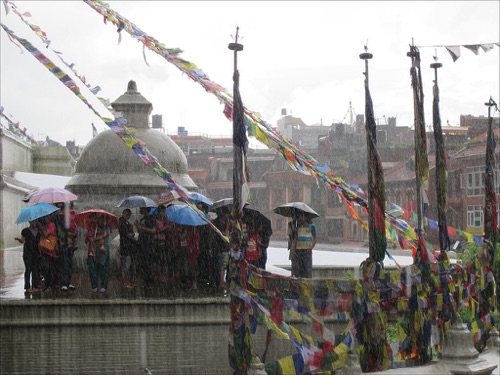
Nepal, July, monsoon: one had better take some vitamin D and possibly some antidepressants to keep Mahakala at arm’s length.
Seriously, rains are great. At last, all the dust and pollution of the past year seems to be washed away, the air purified and rich in ozone.
Dramatic cloud formations may suddenly gather, bang right above your head and forcing you to a find a toilet real fast.
At the mercy of the elements, you have the perfect excuse to do nothing but surrender to boredom and watch the straight streams of water coming down endlessly.
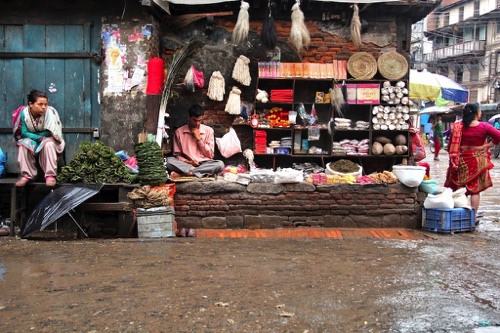
Just like the rich in the valley, my guesthouse possesses heavy, imported batteries that automatically recharge as soon as the power supply does operate. In order that the guests may find their room in the dark hours and read a book at a small light.
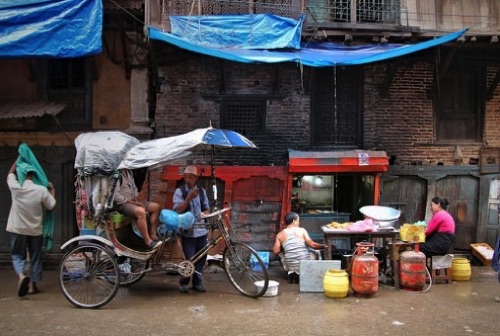
I rather play with photos in the headlight of my laptop - hoping I did recharg the battery in time.
With the following collage as result.
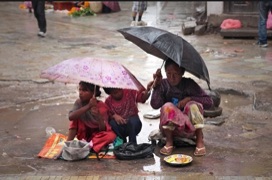
Due to corruption and an exploding number of devices - cooking, heating - electricity shortages remain chronic. Similar to the drinking water supply. Since the fifties, the water network is operating according to a loadshedding system: for

If you have no money for a suction pump to draw water into your house, all goes to the neighbor who did install such a device. If only electricity is available. He’d better have a small generator next to the pump as well.
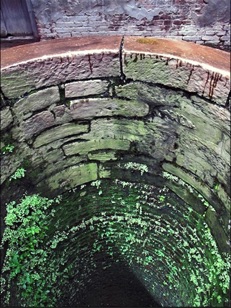
Old and new wells must complement the deficit in the valley. Some may go as deep as twenty meters or more.
Researching Japanese engineers warned that Kathmandu may meet the same fate as parts of Mexico City: subsidence, collapse of houses, loss of amenities and so on.
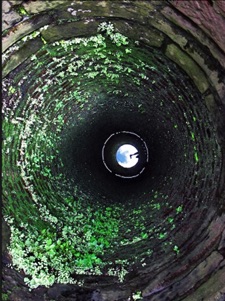
Consequently, a chronic shortage of electricity and water remains in this country in the Himalayas.
Despite its enormous potential of white power, hydropower, and its challenging annual monsoon.
Late July, during Nag Panchami festival, early morning puja is performed in honor of Naga, the Great Almighty Snake, embodiment of primal force.
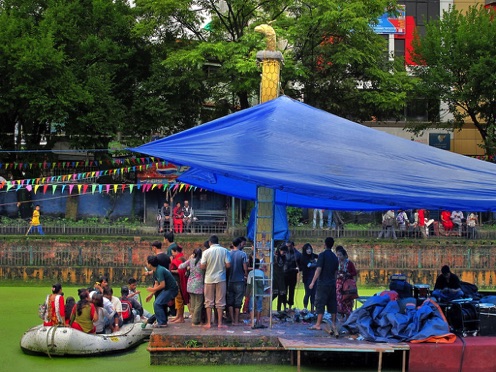
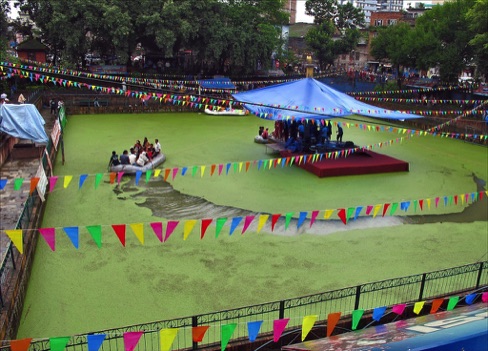
- Is that because many poisonous snakes emerge during the monsoon? I ask a young worshipper who just circled the temple in the village water basin in a boat; traditionally they do not really care for swimming in the Himalayas.

'No. Naga rules the water of the valley.’
- People do puja hoping enough rain will fall?
‘No, no, lest we drown.’
- The harvest, you mean?
(The valley is rather extensive to be filled up by rain).
‘No, we. A long, long time ago, the valley was a large lake.’
- And then Manjushri cut through the edge of the valley in the west and let
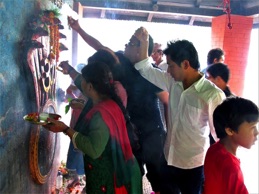
- Wouldn’t it be wiser to do puja to the Manjushri himself?
‘Um .. you’d better ask the priest .. I have to go home now .. for breakfast .. .. namaste.'
Mister Know-it-all..
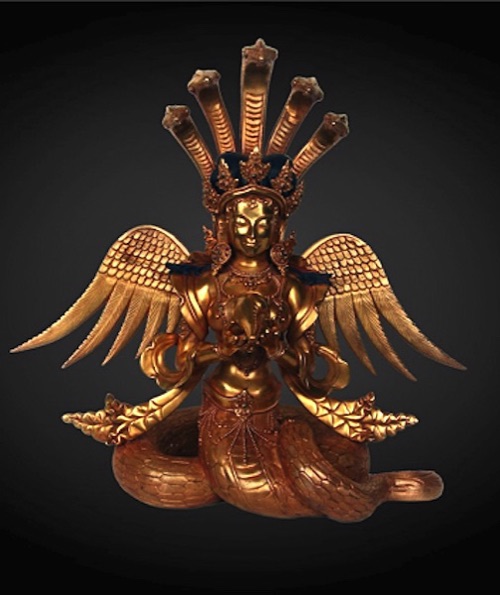

The seventh day counts increasingly fewer worshipers here as well. A large number of them are active senior citizens doing their morning walk - as they daily do, starting at five o’clock. The later they rise, the warmer the day and the more pollution.
Consequently, on Saturday, the day of honor here, I wonder at the desk of the guesthouse: what to do with these early, free hours.
A kind trainee comes up with a tourist brochure, but the somewhat older receptionist waves him off: ‘This one is spoiled, he has seen all, and many times.’

‘Why don’t you visit my hometown for a change?’ his colleague suggests.
- Why would I?
‘It is very quiet and currently intensely green and peaceful, farmers have just planted the rice.’
On the hotel's computer, via Google Earth, he shows me at which valley
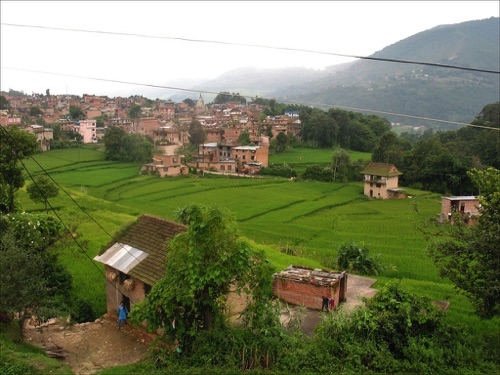
The wet mist, licking and slurping itself downwards from the ridge, makes all wet without any rain.
And intensely green, indeed.
Of course, only together the dozens of hues form that unique green; there is little as cheerful and lively as a field full of young rice shoots.
Or is it my inveterate conditioning on young, green and juicy that tricks me once again.

The flapping wings of a crow flap seem only to intensify the silence.
As if paper is being torn.
The swampy ground muffles all sound.
Intensely quiet, indeed.

And then a smartphone rings from one of the clay houses.
A call from another galaxy.
Intensely weird.
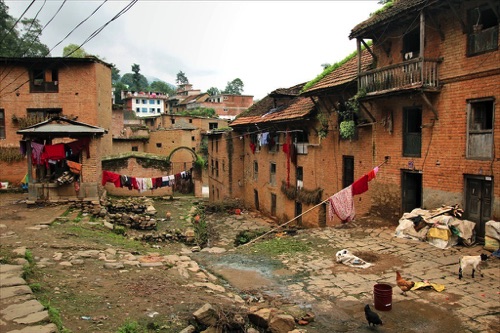
Just that morning I read at breakfast a notice in the Kathmandu Post about why in poverty-stricken areas people spend that much money on expensive ‘digital toys' like iPhones, Samsung, HTC One, etcetera.
(Now, in 2012, lternatives are in India in the making. They’ll be much cheaper, which can’t be too difficult).

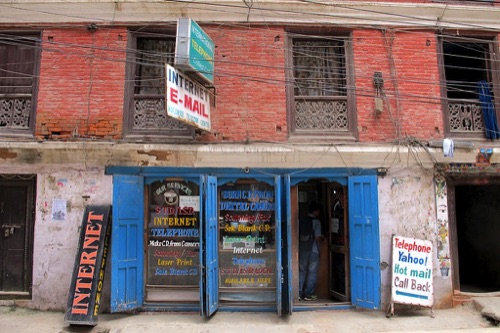
The way mobile phones made the costly cabling for fixed devices superfluous, the same way smartphones skip the need for a computer. Suddenly iChat, Google Mail, photo traffic and what-not is available in distant, mud houses on the slopes of the Himalayas.

'Well? What did you think of my hometown?'
- O, eh.. intensely green and quiet.
‘Didn’t I tell you ..’
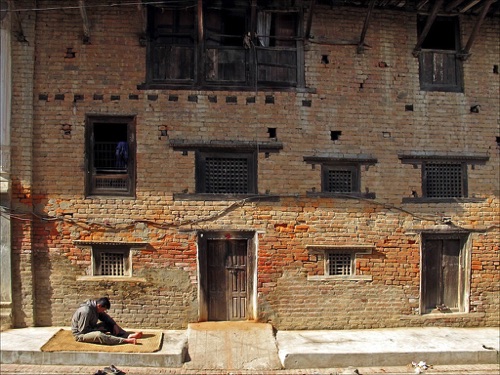
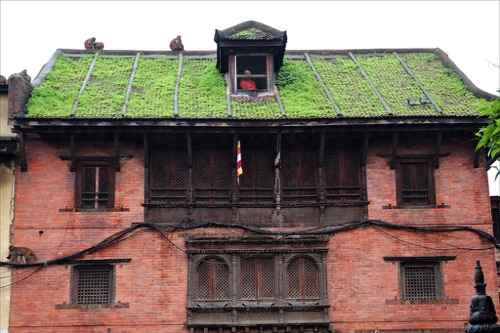
With so many monkeys around, the windows remain shut.

Popular anger unleashed, when in the early sixties skinny men from the Chinese Embassy tried to catch temple monkeys for food. The fact that almost every worshipper dislikes the at times very aggressive animals, did not matter. Certainly not in presence of Buddha.
Why some animals get respected and others don’t, only puzzles the vegetarian.
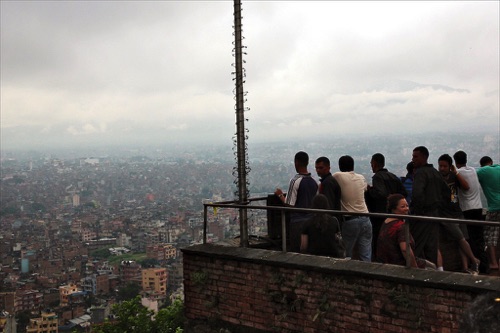
A few people near the Swayambhu stupa hoped to export monkeys to zoos, laboratories or kitchens in the richer world. They did everything to increase the number of macaques. The government, however, didn’t dare to issue export licenses, remembering previous uprisings. Consequently, an even greater number now populates the stupa-hill.
Nasty little animals that seem constantly irritated and bite your buttocks when they get upset about something small, no wonder their genes correspond most closely to humans…
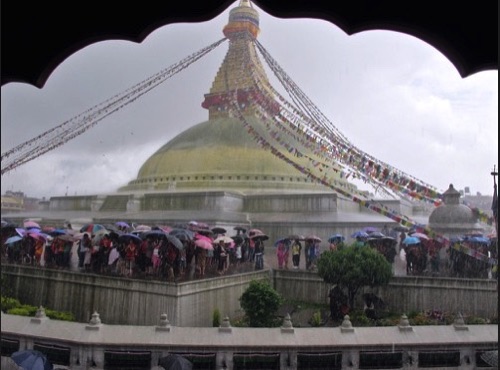
Waiting until the rain is over. That's the downside of a ‘temple of solid construction’, one cannot pop in for shelter.
Maybe just as well.

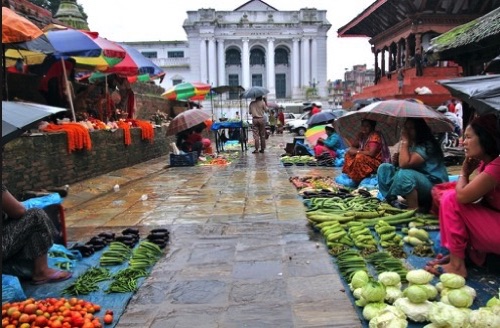
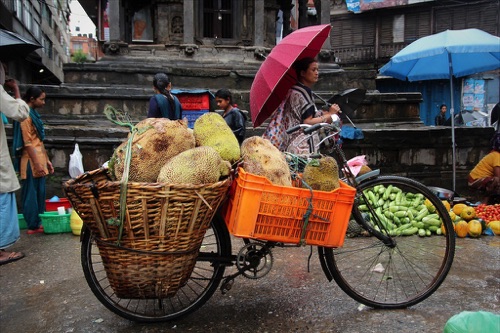
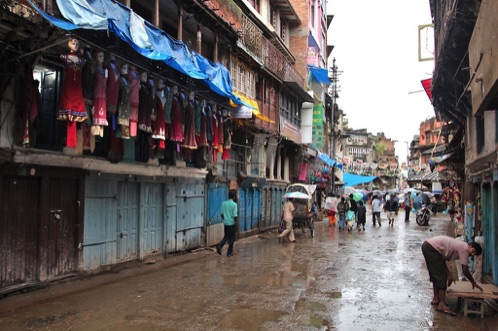
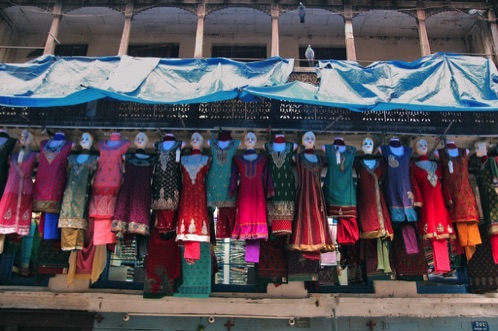
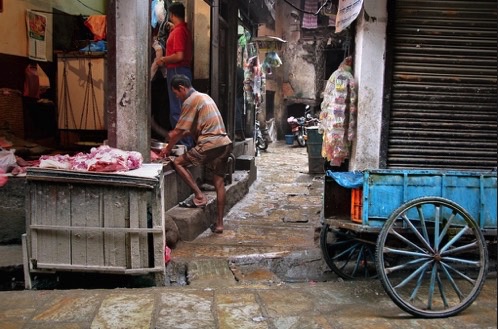
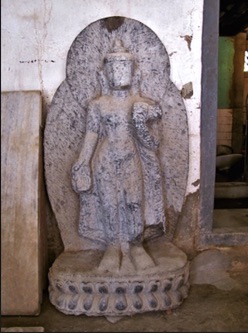
With a stonemason family this statue stands a little aside, clearly put away.
During chopping the hard stone chipped on unwanted places.
I thought it fascinating: what a great symbolism to portray the future Buddha in blurred outlines only.
Or, as the Dalai Lama likes to joke (even though buddhism is not a religion): ‘Buddhism is more democratic. No one can be God, but everyone can become Buddha. ‘
- Anyone for Buddhahood?
I’d better not ask what the statue must yield, knowing what its air transport would cost.
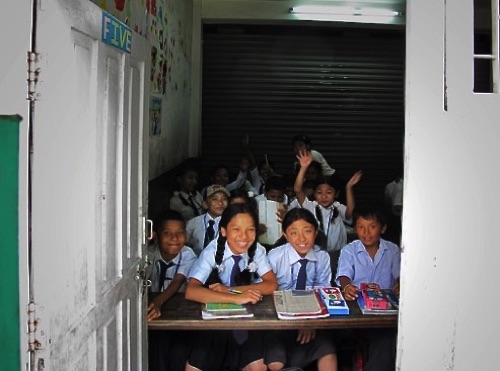
A fellow goldsmith thought it safer to work on the top floor and ever since rents out his old workshop as a classroom to an adjacent school.
The teacher always gives me a go-away look when I slowly pass by. Understandable, because the kids lose their focus when they spot the foreigner.
This morning I saw her just entering the bathroom... From the happy booing she must have concluded that the daily stranger had put his step inside the class with his camera.
And apparently it suited her.
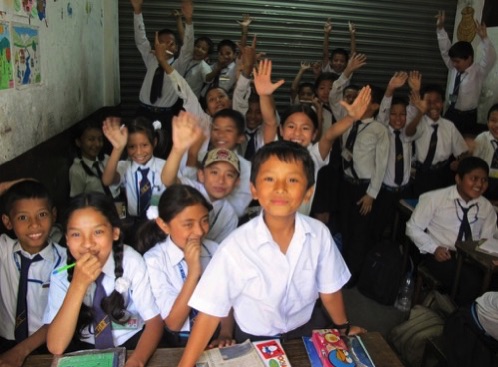
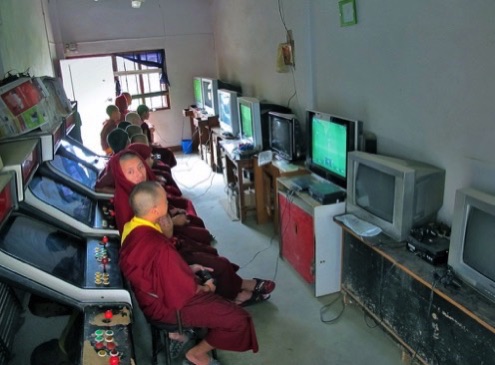
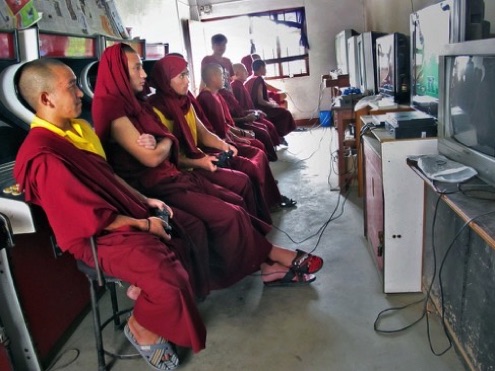
But a paper round would stretch it…

While I take some pictures along the Bagmati River, suddenly a voice barks behind me:
"You must take my picture, sir!"
- Must I?
‘Yes.'
- Why?
‘I’m the next president or Innnndiah.'
- Of Nepal, you mean?
‘No, sir, Nipaul is insignificant. Of Innndiah!’
- And that's worth something, I assume.
'A hundred rupiahhh only, sir. It will prove to be a sound investment.’
- Okay, then let's do a state portrait.
‘Very well, sir,’ he barks on authoritative tone and sets himself up next to a small effigy of Shiva, 'do your part.’
- Yes, sir.
Of course there are as many reasons why someone joins the itinerant babas as there are babas; hundreds of thousands.
And of course it means little that I feel a mixture of melancholy and curiosity arise because his English bark is so gorgeously loud and clear.
But still, why does such a worthy man choose for such undressed life...
Any hint to his background he halts resolutely: ‘Let's not get into that matter, sir, all will soon be secret of state.”

Tucked in a corner, an ancient Ganesh shrine sits, where every morning countless generations pass from the left to pay their respects to - or ask for assistance from - The Remover of All Obstacles himself. For centuries, this street was on the trade route between India and Tibet. Here and there you can still tell this from the larger houses that due to neglect are close to collapse. Despite all the violence called progress, this Ganesh itself is not removed as an obstacle yet ...

This picture caught the one time the boy dared to look up at all the sudden attention. Not for his shoe repair but for him as a person.
The students were making an item on child labor that had to be aired the very same evening.
Each question the interviewer ended with the words: ‘... and look up when you answer.”
Apparently that was to be aired as well.
The boy mumbled that both his parents had deceased at very young age.
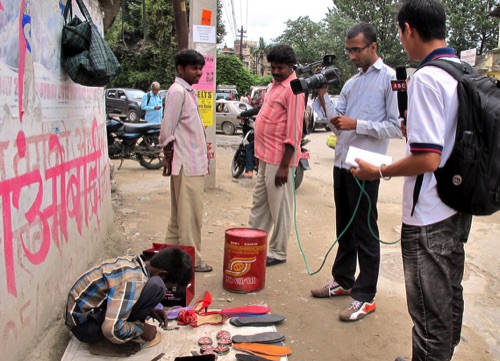
Maybe it helps when I leave, I thought, and therefore could not ask the gentlemen what puzzled me:
since the kid right away grabbed life by the horns as a small independent, could you still label him as child labor?
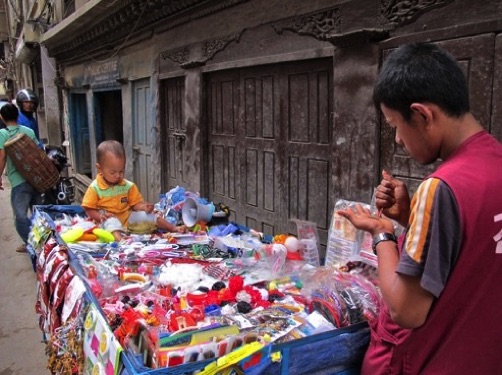
With a ballpoint father is calculating on his handpalm.
The child has a table in a paradise of toys.
The megaphone creaks a children's song.
Will this kid ever in his life eat tastier… ?
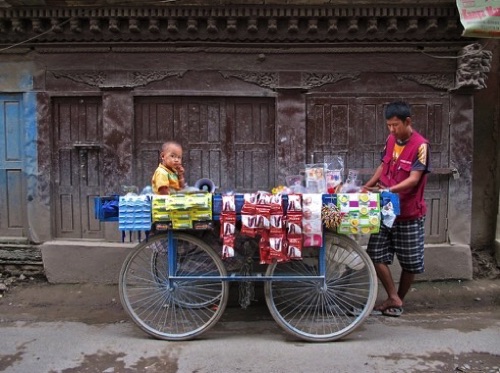
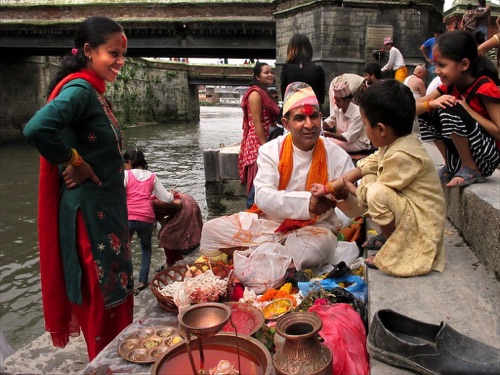
With a cotton cord the priest binds the boy to the caste he was born in.
A momentum, being witnessed by a cheerful little sister, a proud mother and a skeptical stranger.
The following boys were raised very much the same way:

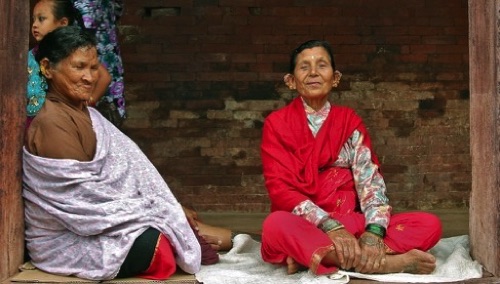
You should shoot over there, she nods with her head, that's where the parade will come from. Even her ear flaps the direction.
‘It is about your earrings,’ the peasant woman in the black-red sari mutters.
Coquettish she straightens a little.

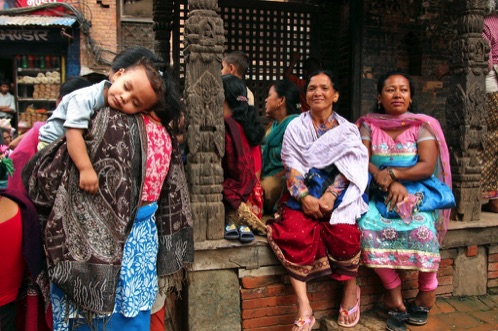
Making a portrait of the two as friends was laughed at: totally unnecessary.
Taking a picture of the sleeping child on mother’s shoulder at once was agreed and welcomed.
Fortunately my lens registered a little beyond.

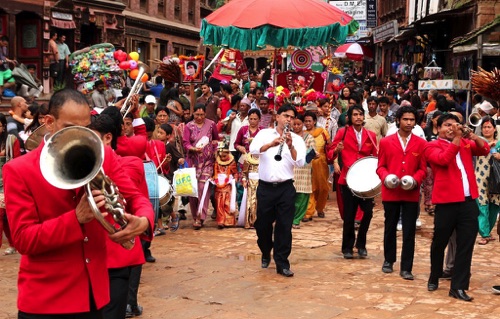
Just before the rice planting - at the beginning of the rainy season - the cow festival traditionally takes place. For if there is one embodiment of fertility…
Every stage in a peasant’s yearly cycle has its own festival, some seasons there is one every other week. But the climate is no longer in accordance with the time that the festivals originated. Partly due to the advancing digital world, both understanding and spirit fall back and gradually ancient traditions fade away into caricatures...

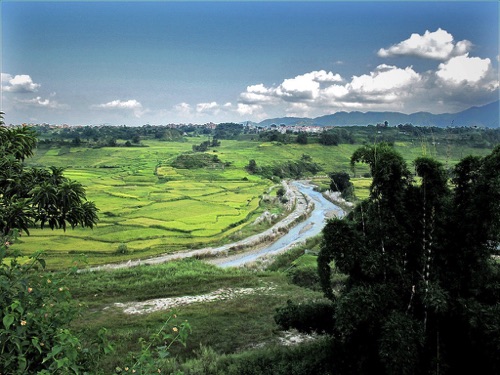
only a few hours a day drinking water may be coming from the tap.
the water drain - that legend you mean?
‘Yes… yes…’ He looks a bit bewildered at me.
slope it sits.
- Okay, I'll go to your village. Any greetings for anyone?
‘You? You’d scare them.’
Buddhas in the making.
All photographs and texts ©Kashba Ais Loupatty & Ton Lankreijer.Webdesign:William Loupatty

